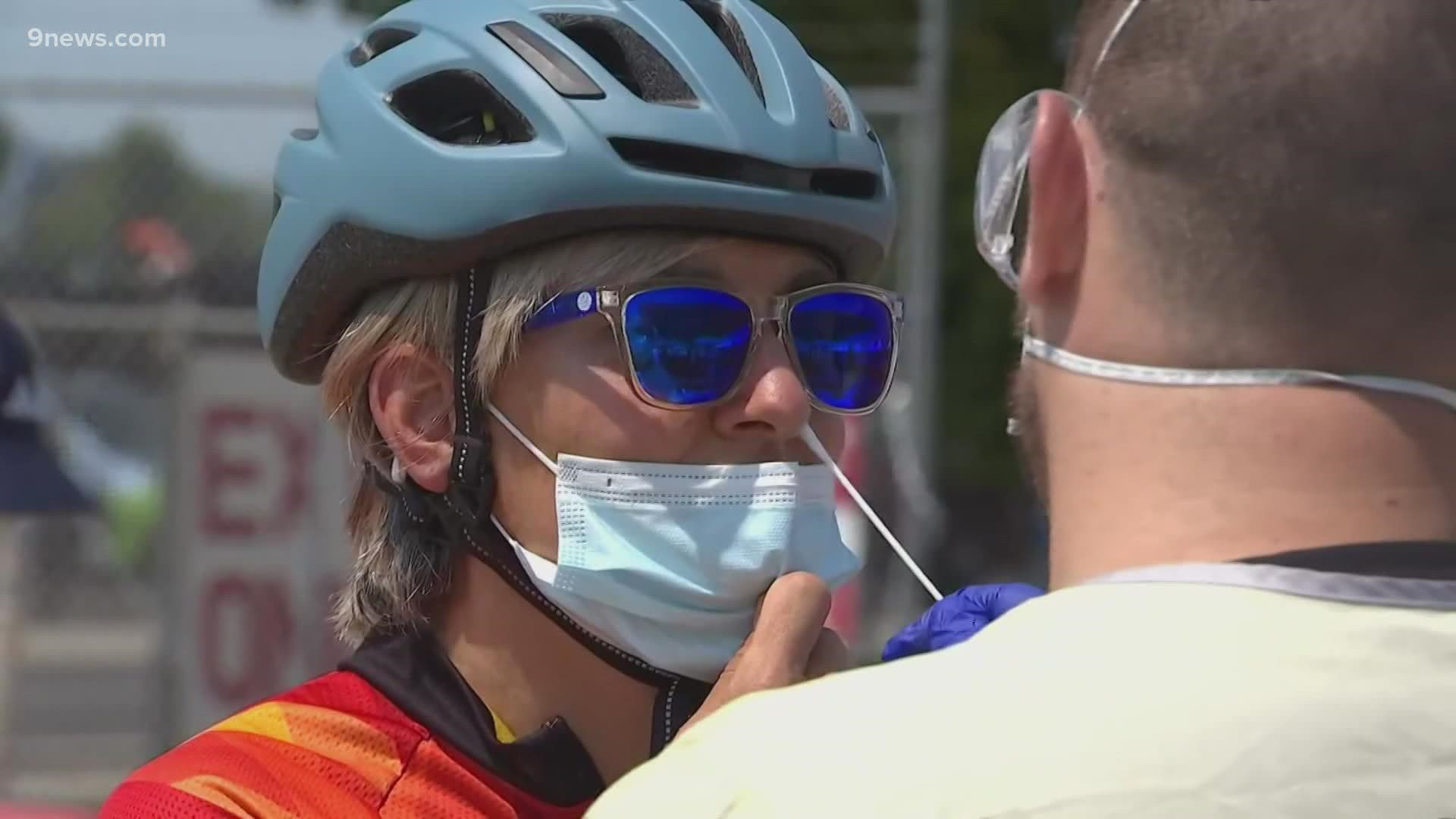COLORADO, USA — As omicron spreads at a staggering speed, many of the top news stories are highlighting endless cancellations of sports games, shows and flights in an effort to stop the spread of the new COVID variant.
These events have undoubtedly left many people questioning much of what they know about COVID-19 and what symptoms to look out for when it comes to omicron.
According to 9NEWS health expert, Dr. Payal Kohli, the symptoms of omicron may be different than those of the original virus strain.
"In particular, there is less cough, high fever and loss of taste or smell," she said.
Although there is still much to be learned about the new COVID variant, Kohli said that omicron symptoms may more mild than the initial strain which may give some people a false sense of security even when they do encounter symptoms.
The more prominent omicron symptoms are:
- Headache
- Back pain
- Nasal congestion
- Sneezing
- Scratchy throat
Now that the family gatherings are over, Kohli said the medical community is bracing for a surge in COVID-19 cases following family and friends gathering for the holidays.
"I have to say that the medical community is preparing for the worst because this variant is incredibly contagious more than any other variant we have seen," she said.
By the end of Christmas week, the Centers for Disease Control and Prevention (CDC) estimates that variants will fuel a possible 55% spike in new infections and result in 1.3 million new cases.
Omicron also has a much shorter incubation period from the point of exposure.
"This is behaving very differently, and those three to five days that is stuck in everybody’s head needs to shift up now, to more like two to three days just because of the incubation period being different," said Kohli. "Because it’s a shorter incubation period, you spread it more quickly without even realizing, so you need to test earlier in order to prevent the spread."
Kohli recommends the following for people that may experience omicron symptoms.
- Test immediately. However, with a vaccinated person, he/she may test negative even after the symptoms start because the immune system kicks in early, which causes the symptoms. In an unvaccinated person, the onset of symptoms means that the immune system has already kicked in and so likely the viral load is high.
- Isolate for seven to 10 days or until your symptoms resolve and you test negative.
- Call your doctor and see if you qualify for antibodies or antiviral medications.
Although no deaths related to the new variant have been reported in Colorado, one unvaccinated man in his 50s has been reported to have died after being infected with the omicron variant in Texas.
Colorado COVID-19 data
Officials with the Colorado Department of Public Health and Environment (CDPHE) gave an update on the state's response to the COVID-19 pandemic last week and said that cases are trending up for the first time in weeks.
CDPHE State Epidemiologist Dr. Rachel Herlihy said the increase is likely being driven by the omicron variant. The percent positivity data also show an increase, with a current seven-day average positivity rate of 7.8%.
The state has detected key omicron signatures in all 21 wastewater systems that are participating in CDPHE's detection program. State labs have also seen a sharp increase in the percentage of positive PCR tests presenting the profile for the omicron variant, particularly since Dec. 10.
Herlihy said this data suggests that potentially half of all new cases detected in recent days could be caused by the omicron variant.
Isolation and quarantine
On Monday, CDPHE updated its guidance to match the new recommendations from CDC regarding COVID-19 isolation and quarantine.
The guidance reduces the recommended time in isolation for those in the general population with COVID-19 from 10 to five days, if asymptomatic on day five, followed by an additional five days wearing a mask when around others.
This change is based on data showing that the majority of COVID-19 transmission occurs early in the course of illness, according to CDPHE.
SUGGESTED VIDEOS: COVID-19 Coronavirus

